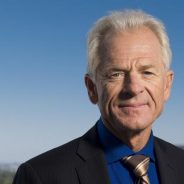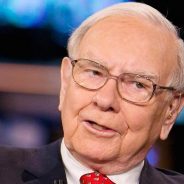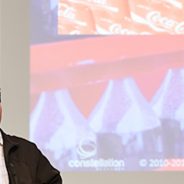Search results for Where Should I Work:
Hot MBA Jobs: Investment Banker
Investment banking and MBAs have always had an interesting love affair; they’re on, they’re off, they’re hot, they’re cold. Truth be told, in recent years, fewer MBAs are going into investment banking and investment banks are hiring fewer MBAs. Instead, MBAs are choosing a broad range of career paths including entrepreneurship, and investment banks are hiring Masters in Finance students and graduates. Continue reading…
Quinlan Professor Named ‘2016 Reviewer of the Year’
Marketing Education Review, one of the world’s premiere marketing scholarly publications, recently named Quinlan School of Business Assistant Professor Jenna Drenten as the “2016 Reviewer of the Year.”
Marketing Education Review annually awards its top reviewers with the honor. Reviewers are faculty members who volunteer to review paper submissions from other academics. Continue reading…
Holiday Debt Hangover: The Dangers of Contactless Payment
The holidays may be over, but for many they are far from forgotten. For kids, the holiday joy continues with toys and games, but for adults, the holiday hangover might not be as pleasant. In fact, according to Niro Sivanathan, bssociate professor of organisational behaviour at London Business School (LBS), the holiday hangover could mean an unprecedented amount of festive debt. The truth is that in 2016, more people than ever used touchless payment to make their holiday purchases, and that comes with some consequences: the holiday debt hangover. Continue reading…
Online MBA Programs in Houston
There’s something to be said for living, working and going to school in Houston. According to the 2013 Annual Cost of Living Index, Houston has the third lowest overall cost of living among the nation’s most populous metros. As for housing prices, those are also 36.6 percent below average. And when it comes to higher education, last year more than 403,300 students were enrolled in higher education in the Houston area, and more than 71,700 degrees and certificates were awarded for the 2013-14 year.
So, there’s no doubt that Houston is a great place to live, work, and learn but what about if you can’t make a move to Houston or you can’t take time off of your job to earn an MBA? What then?
There’s good news. There are two MBA programs in Houston that offer an online study option for the ultimate in flexibility. And to help you make the best decision on where to go to school, we’ve outlined the top online MBAs below. Continue reading…
Top Employers D.C.
When you think about Washington, D.C., the first thing that probably comes to mind is politics, but the DC area offers so much more. The District of Columbia is officially home to 4.8 million people with a median household income of $93,200 and 48 percent of the population having attained a college education. The city is also home to all three branches of the U.S. federal government as well as 176 foreign embassies.
But working for the federal government isn’t your only option in the city. Yes, the federal government is the area’s largest employer, but the public school systems in D.C. hire the most number of people. And if neither of those sounds interesting, D.C. is also the headquarters of the World Bank, the International Monetary Fund (IMF) and the Pan American Health Organization (PAHO). Plus, there are many large employers in the region.
So, if you’re thinking about living and working in Washington D.C.—post earning your MBA from Georgetown University’s McDonough School of Business or George Washington University’s School of Business—where should you work? There are plenty of options. It all depends on what you’re looking for. We’ve outlined a list of the top employers DC has to offer based on size, reputation, benefits and more. Continue reading…
University of Washington Welcomes Tent City to Campus
Thanks to a campaign by students at the University of Washington, Seattle’s homeless population has a new place to sleep. A 10,000 square-foot encampment—part of a roving tent city—has been set up in a parking lot on the school’s west campus. It’s a convenient location for residents who work near the city’s center and will welcome dozens of people at the school’s invitation. Continue reading…
Trump Appoints Controversial UC Irvine Professor Peter Navarro
Paul Merage School of Business economics professor Peter Navarro, one of the nation’s harshest critics of China, has just earned a seat on President-elect Donald Trump’s cabinet.
As a professor with the business school for over 20 years, Navarro penned nine books, most of which unmistakably mark China as a threat to the U.S. and the world-at-large. Several of his published works include The Coming China Wars, Death by China: Confronting the Dragon – A Global Call to Action and Crouching Tiger: What China’s Militarism Means for the World.
Death By China was also adapted into a short documentary feature narrated by actor Martin Sheen, in which he argues that the American people must “help defend America and protect your family – don’t buy ‘Made in China’.”
Navarro acted as a special advisor during Trump’s campaign, likely driving his ideological attacks against global trade, Chinese manufacturing and the loss of U.S. jobs.
The announcement of Navarro’s appointment has arrived shortly after several potentially antagonizing tilts between the two economic superpowers. First, shortly after the election, Trump had a phone call with acting Taiwan President Tsai Ing-wen allegedly without previous discretion (the Trump team stated that the call was pre-planned), going against decades of foreign policy agreements. Then, just last week, after China seized a submarine drone, Trump criticized the incident on Twitter. He writes:
We should tell China that we don’t want the drone they stole back.- let them keep it!
— Donald J. Trump (@realDonaldTrump) December 18, 2016
He will head the White House National Trade Council, serving as director of trade and industrial policy.
3 Rotman Grads Named Canada’s Most Powerful Women
If there’s one thing that everyone can agree on, it’s that women are necessary for business. In fact, companies with a female on the board of directors, on average, have a 53 percent higher return on equity. The issue is that though women represent 47% percent of the workforce, they only represent 17 percent of boardrooms, and 4.8 percent of CEOs among the Fortune 500 companies, according to the Forté Foundation.
That’s why University of Toronto’s Rotman School of Management has made it a priority to promote women in business. And their efforts have recently been rewarded with both a Rotman professor and two alumni named to the Women’s Executive Network (WXN) list of Canada’s Most Powerful Women for 2016. The list featured 100 women in total, including several graduates of the Rotman School’s Judy Project and Executive Programs. Continue reading…
LBS Alumni Spotlight: The Retail Industry & Holiday Trends
Unlike the consulting, finance and technology sectors, retail has always been regarded as a safe industry for employment. That’s because no matter how bad the economy gets, the retail industry will never cease to exist as long as people still make purchases. And that’s especially true for the holidays.
Each year during the holidays, on average, UK households spend £794.39 and US households spend $752.00. It’s not a small chunk of change. There’s no doubt that it’s a busy time of year, and many retail companies go all out to bring in new customers and grab the largest percentage of sales. But does that mean it’s a good industry to work in? Continue reading…
Inside the FinTech Industry
Finance has always been one of the hottest MBA industries. In fact, at many top schools such as the Booth School of Business and NYU Stern, over 30 percent of MBA graduates go into the financial industry each year. Why? Because it’s lucrative—the average Finance MBA earns $121,000 a year compared to $104,000 for other specialties—and well respected. However, until now, one thing that an MBA in finance did not offer was innovation.
The finance industry is one of the oldest and most prestigious industries around. It’s built on a foundation of history and careful research; after all, no company wants a CFO who makes decisions based on gut instinct. But, recently, a new side of the financial services industry has started to gain traction: FinTech. Continue reading…
Hot MBA Jobs – Nonprofit Fundraiser
It goes without saying—everybody likes making money. But while everyone loves some extra change in their bank accounts, some really get a sense of accomplishment working directly for a cause or nonprofit corporation.
Jones Full-Time MBA Named Top Ten Program in the U.S.
The full-time MBA program at the Rice University – Jones Graduate School of Business was recently named the 8th best program in the country for 2016 by Bloomberg BusinessWeek, a position which will have implications far and wide for the school and those involved with it.
Top MBA Recruiters: Berkshire Hathaway
When considering where you want to work, there are a lot of things that come into play. Do you want to work in a small startup or a large multi-national corporation? Do you want variety or do you want to become an expert in a particular field? Do you want prestige or would you rather be a worker-bee? The good news is that there are organizations that can fit any desire, including Berkshire Hathaway.
MIT Sloan Lecturer Talks Digital Disruption and Future Monopolies
MIT Sloan recently published an article that rounds up the insights Constellation Research founder, principal analyst and chairman R “Ray” Wang imparted at the Innovative Leadership Series to students “looking to take on—and take over—an industry.”
Wang has had a front-row seat to the “digital disruption of the last decade” as he’s helped his big-name clients “navigate digital transformation.” According to Wang, “More than half of Fortune 500 companies lost money last year while more than half of the companies on the list since 2000 are gone—merged, acquired, bankrupt, or off the list.”
Wang suggests that the reason many companies fail has to do with a focus on “operational efficiency.” Fortune 500 companies, Wang argues, should be asking themselves the tough existential questions related to their mission and business model to help them “figure out the products, the services, the insights, the experiences and outcomes.”
The second major piece of advice Wang offered related to the benefits of data. Simply put: “Data leads to information that can be shared with customers for a fee, in an effort to provide a better service. And it doesn’t cost a lot of money to implement.”
Wang pointed to the successes of “matchmakers” like Etsy and TaskRabbit, which reduce friction and distance between customers and service providers, as evidence that the increasingly streamlined connections between consumers and large companies has and will continue to make middlemen obsolete. “Nobody wants a middleman, unless that middleman is adding value.”
Wang cites Amazon’s “unbeatable” all-in-one “content, network, and technology platform” as one he believes companies across all industries will attempt to copy. But the bigger question is how to partner with—or absorb—other organizations to build “the next set of vertically-integrated monopolies.”
The Top Finance MBAs in Chicago
The finance industry has always gone hand in hand in the MBA. Even as MBAs are becoming increasingly popular in other industries, finance is still the biggest MBA job sector and accounts for 22 percent of all MBA jobs, according to the 2014/15 QS TopMBA.com Jobs and Salary Trends Report. Continue reading…
Diversity and Inclusion at USC Marshall
There’s no doubt that interacting with classmates is one of the best parts about attending an MBA program. That’s because when you surround yourself with excellence, you can’t help but excel yourself. And that’s definitely true at the USC Marshall MBA program. Not only are all Marshall MBA candidates top-tier, but they also arrive with a diversity of ideas and opinions that truly enrich the entire experience. In fact, according to the most recent class profile, 32 percent of the MBA class is composed of women, 32 percent are from outside of the U.S. and 13 percent are underrepresented minorities. Continue reading…
No GMAT/GRE Required at These Houston MBA Programs
There’s a lot of work that goes into your MBA application. Not only do you have to write individual essays for each school and tailor your resume, but you also have to get letters of recommendation and perform well in an interview. And for those bad test-takers, there’s one other element that can leave you in a cold sweat—the GMAT/GRE.
Let’s be brutally honest. Prepping for the GMAT/GRE is stressful and tiring. Who has time to spend hours each week reading a textbook and taking practice exams? For many, it’s a nightmarish process that makes the prospect of getting an MBA a lot less attractive. Even worse, some of the top schools expect GMAT scores above 715 according to U.S. News. But there is good news.
Not every school requires the GMAT or GRE. In fact, six schools in Houston, Texas offer MBA program admission without the test. So, if the idea of testing makes you want to hide in a corner and never come out again, consider applying to one of these schools instead. Continue reading…
SDSU Professor Reveals How CEO’s Get Pay Raises
Have you ever wondered if there were “magic words” that could help get a pay raise? Well, if you’re a CEO who’s dealing with shareholders that might be the case. Taekjim Shin, Management Professor at San Diego State’s Fowler College of Business, discovered that the words “shareholder value” could increase a CEO’s yearly compensation by an average of $116,000.


















